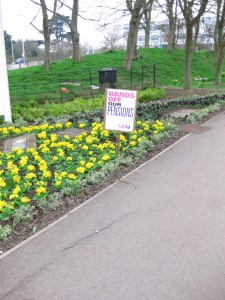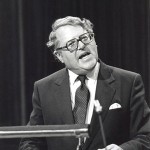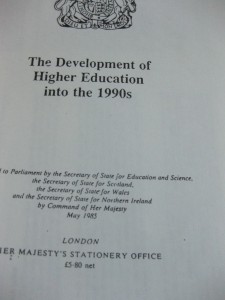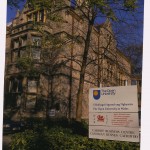One of the ways in which the OU has had an impact is in helping learners transfer their skills and apply their formally assessed learning within the informal sector. It has enabled the production of knowledge outside the academy through a commitment to communities of ex-students. Students, many of whom had never met one another, have been encouraged to go on to form informal, voluntary, convivial, educational communities of practice based on those studies. These have enabled them to achieve together that which they could not separately. There are many OU examples of partnerships and traffic across what has been characterised as a ‘moving frontier’ between the state and civil society.
Between 1976 and 1985 a second level module, Art and environment, did not offer practical skills in painting or sculpture nor did it offer art criticism or cognitive skills. Rather it dealt with ‘the processes and attitudes of art’ and sought to develop ‘strategies for creative work’. Members of the society created by former students of the module, ‘share skills, experiences, ideas and knowledge of creativity and personal growth’.
 Created, in 1998, by students and staff from an interdisciplinary third level module, The Family & Community Historical Research Society has conducted a range of connected local historical projects, encourages links between institutionally based and independent researchers and offers its own Continued Learning courses. This society is formally registered as a charity.
Created, in 1998, by students and staff from an interdisciplinary third level module, The Family & Community Historical Research Society has conducted a range of connected local historical projects, encourages links between institutionally based and independent researchers and offers its own Continued Learning courses. This society is formally registered as a charity.
A first level digital photography module which was first presented in 2007 encourages students to upload photographs and discuss them online. Former students have established their own online groups in order to continue to collaborate.
 In September 2010 the work of 36 OU students was collated into a book by fellow student Esther Clark At home with words includes 72 short stories and poems, many written for A215 Creative Writing but others written especially for the book. All profits from the book will go to Cancer Research UK which was also sponoired by a specialist letting company, Leaders.
In September 2010 the work of 36 OU students was collated into a book by fellow student Esther Clark At home with words includes 72 short stories and poems, many written for A215 Creative Writing but others written especially for the book. All profits from the book will go to Cancer Research UK which was also sponoired by a specialist letting company, Leaders.
If you know of a course which inspired people to go on learning together, please contact us.
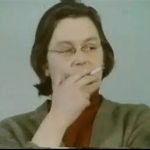 When discussing the history of The Open University and the impact it has made on the world of higher education more widely, one of the aspects most often mentioned is the impact of the course team. This collective approach to course production stood in contrast to the individually prepared lectures offered in conventional institutions. (more…)
When discussing the history of The Open University and the impact it has made on the world of higher education more widely, one of the aspects most often mentioned is the impact of the course team. This collective approach to course production stood in contrast to the individually prepared lectures offered in conventional institutions. (more…)
